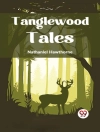Leo Tolstoy’s ‘War and Peace’ is an epic novel that intricately weaves the lives of its characters against the backdrop of the Napoleonic Wars. Set in early 19th century Russia, the narrative merges historical events with personal sagas, exploring themes of fate, free will, and the nature of power. Tolstoy’s literary style is characterized by a profound philosophical depth, intricately layered character development, and vivid descriptions of both grand battles and intimate moments, making the novel both a historical chronicle and an intimate exploration of human experience. Tolstoy, a member of the Russian aristocracy, experienced the turmoil of his times firsthand, which deeply informed his writing. His transformation from a privileged landowner to a serious thinker and social reformer is reflected in ‘War and Peace, ‘ where he grapples with moral dilemmas and the harsh realities of life. His own struggles with faith, love, and existential meaning resonate throughout the narrative, revealing a profound humanism that transcends time. ‘War and Peace’ is not merely a historical novel; it is a timeless exploration of humanity itself. Readers seeking a rich tapestry of life’s triumphs and tragedies, interwoven with deep philosophical insights, will find Tolstoy’s masterpiece an indispensable addition to their literary journey.
About the author
Count Lev Nikolayevich Tolstoy, more commonly known as Leo Tolstoy, was born on September 9, 1828, in Yasnaya Polyana, Russia, and passed away on November 20, 1910. Tolstoy is widely regarded as one of the greatest novelists in the annals of world literature. His masterpieces ‘War & Peace’ and ‘Anna Karenina’ stand as pinnacles of realist fiction. ‘War & Peace’ (1869), a novel woven with the historical narrative of Napoleon’s invasion of Russia and the effects of the Napoleonic era on Tsarist society through the lives of five Russian aristocratic families, has been acclaimed for its complex structure, vast cast of characters, and insightful analysis of the varieties of human experience. A veteran of the Crimean War, Tolstoy’s exposure to the futility and carnage of military conflict deeply influenced his writing and philosophical outlook. His fiction, characterized by its moralistic and ascetic tendencies, evolved significantly over time, echoing his own journey through spiritual crisis and pacifist leanings. Tolstoy’s stylistic techniques, particularly his attention to detail and use of realistic dialogue, have cemented his legacy as a pioneering figure in literary realism. Outside of literature, Tolstoy’s ideas on nonviolent resistance influenced figures such as Mahatma Gandhi and Martin Luther King Jr. Tolstoy’s impact on both literature and social thought continues to be the subject of extensive scholarly discussion and reverence.












